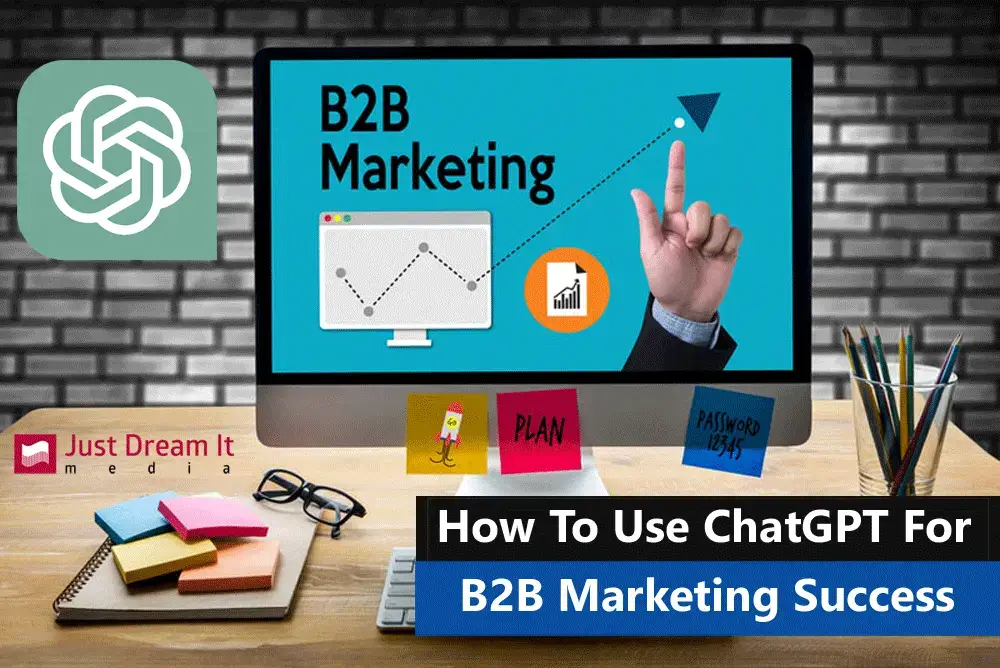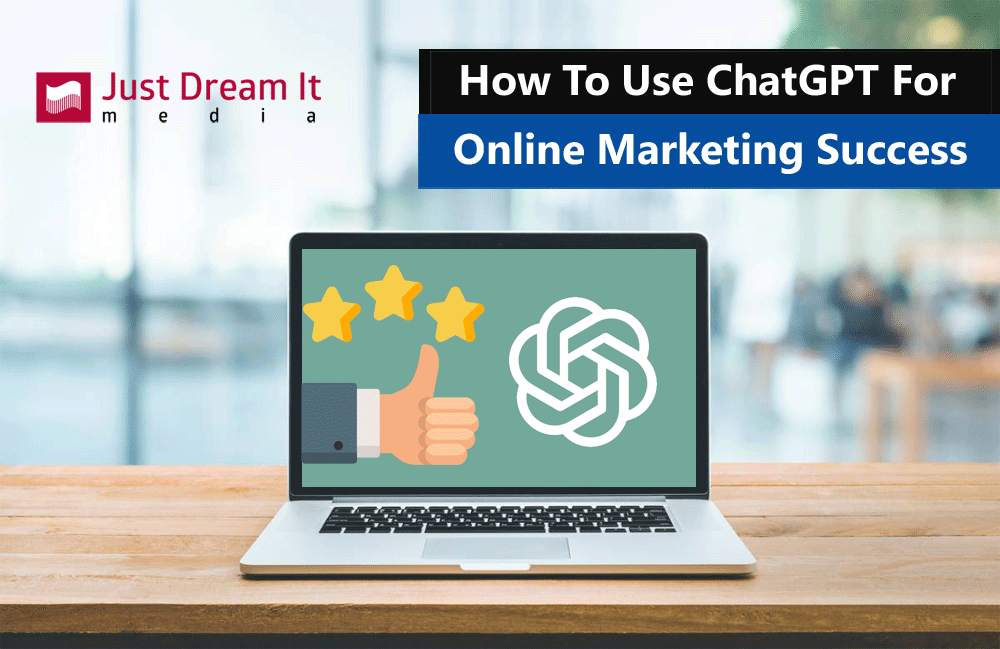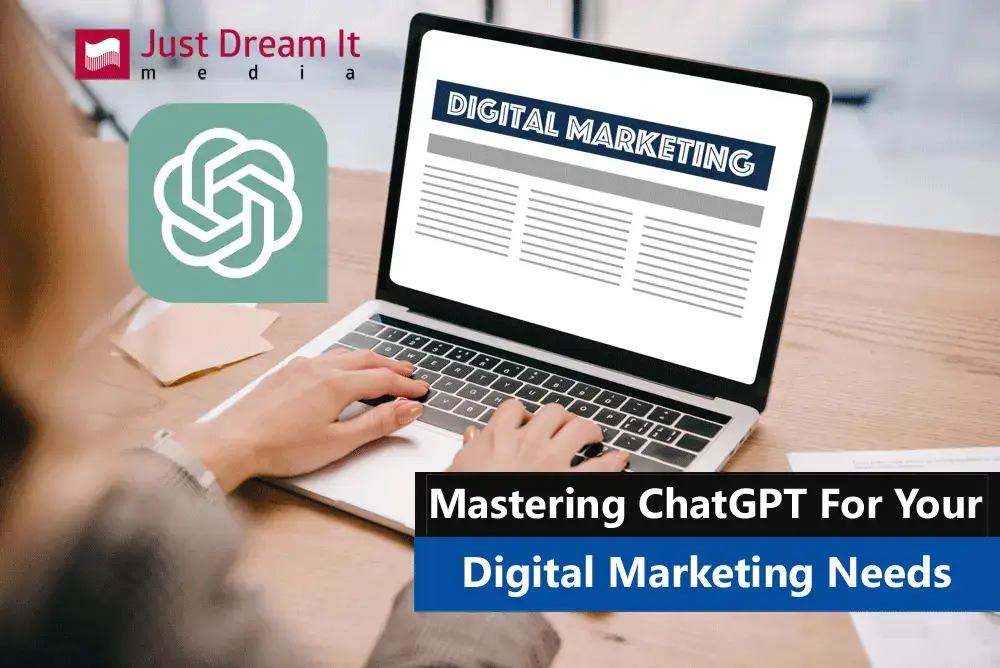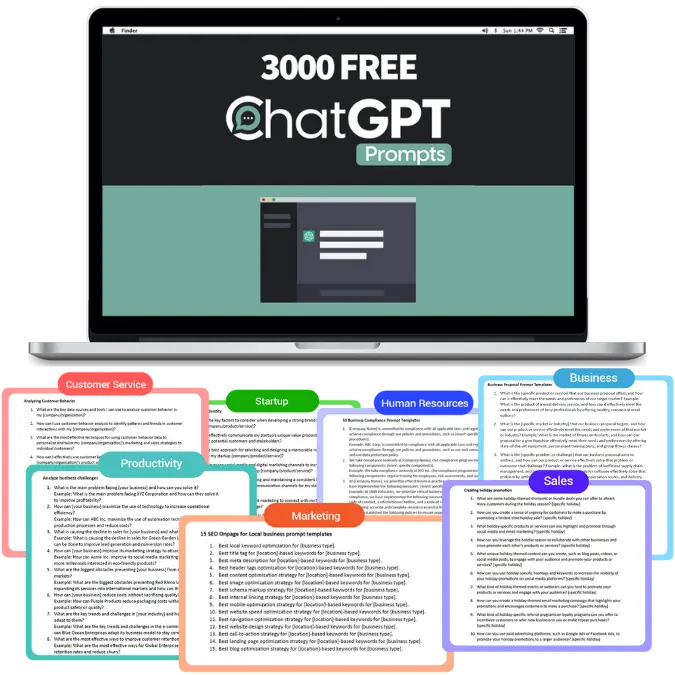Harnessing the Power of ChatGPT: A Comprehensive Guide to B2B Marketing Success
As artificial intelligence (AI) continues to make significant strides in business, its importance in B2B marketing cannot be overstated. One such AI-powered tool that has gained prominence in recent years is ChatGPT. This article will provide a comprehensive guide to using ChatGPT for B2B marketing success, complete with engaging real-life examples and step-by-step processes.
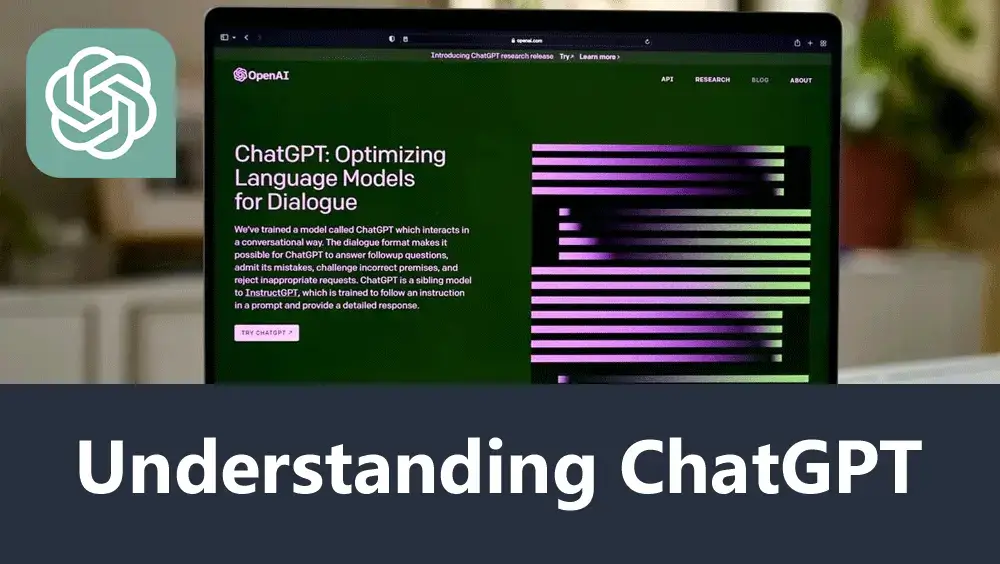
Understanding ChatGPT
GPT-4 Architecture
At the core of ChatGPT is the GPT-4 architecture, an advanced version of OpenAI’s well-known Generative Pre-trained Transformer models. GPT-4 has been trained on massive amounts of data, enabling it to generate highly relevant and context-aware content for a wide range of applications, including B2B marketing.
Language Capabilities
ChatGPT boasts impressive language capabilities, making it a valuable tool for crafting engaging marketing content. It can understand and generate content in various languages and formats, making it a versatile option for businesses operating in diverse markets.
Limitations
While ChatGPT is an incredibly powerful tool, it has its limitations. For instance, it may sometimes generate content that is biased or offensive. To address this, it’s crucial to have a human editor review and refine the generated content to ensure it aligns with the company’s brand values and messaging.
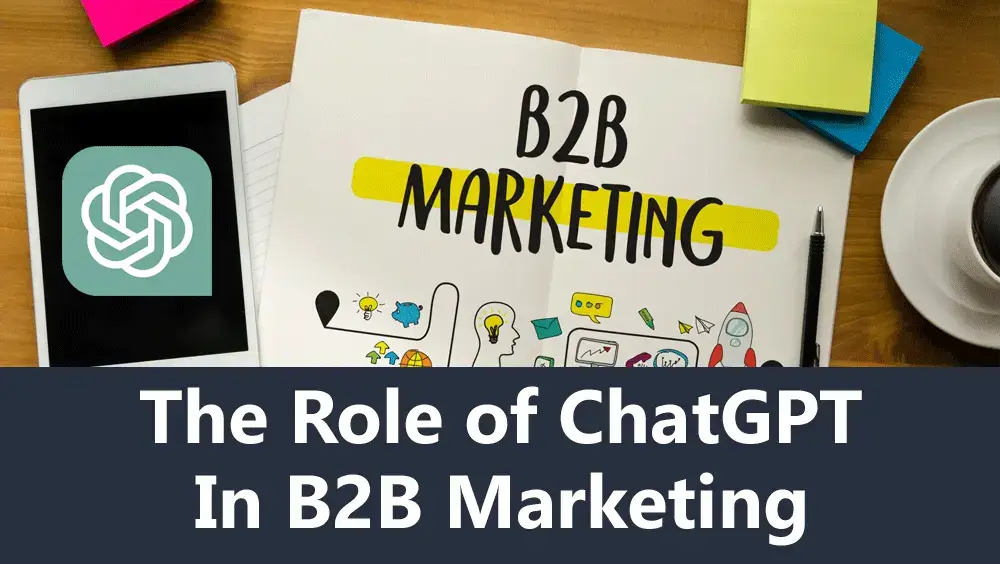
The Role of ChatGPT in B2B Marketing
ChatGPT can be employed in various ways to improve B2B marketing efforts. Its applications range from content creation and customer engagement to market research.
Content Creation
One of the most popular applications of ChatGPT in B2B marketing is automated content generation. By leveraging AI-driven content creation for businesses, marketers can save time, reduce costs, and maintain a consistent brand voice across different channels.
Blog Posts
For example, a software development company can use ChatGPT to generate blog posts about industry trends, best practices, and case studies. By inputting a few relevant keywords, such as “AI-driven software development” or “optimizing software development workflows,” ChatGPT can generate a well-structured, informative article. This saves the marketing team time and resources, allowing them to focus on other aspects of their marketing strategy.
Whitepapers
ChatGPT can also be used to create in-depth whitepapers that delve into complex industry topics. For instance, a cybersecurity firm can use ChatGPT to develop a whitepaper on the latest threat landscape and best practices for protecting against cyberattacks. By providing the AI with an outline and relevant keywords, such as “cybersecurity threat landscape” or “best practices for cyber defense,” the firm can obtain a well-researched and comprehensive whitepaper that effectively engages their target audience.
Case Studies
Another valuable application of ChatGPT in content creation is generating case studies. A cloud services provider, for example, can use ChatGPT to create a case study showcasing how their services helped a client overcome specific challenges. The AI can be fed information about the client, their problem, and the solution provided, and it will generate a compelling narrative that demonstrates the provider’s expertise and value.
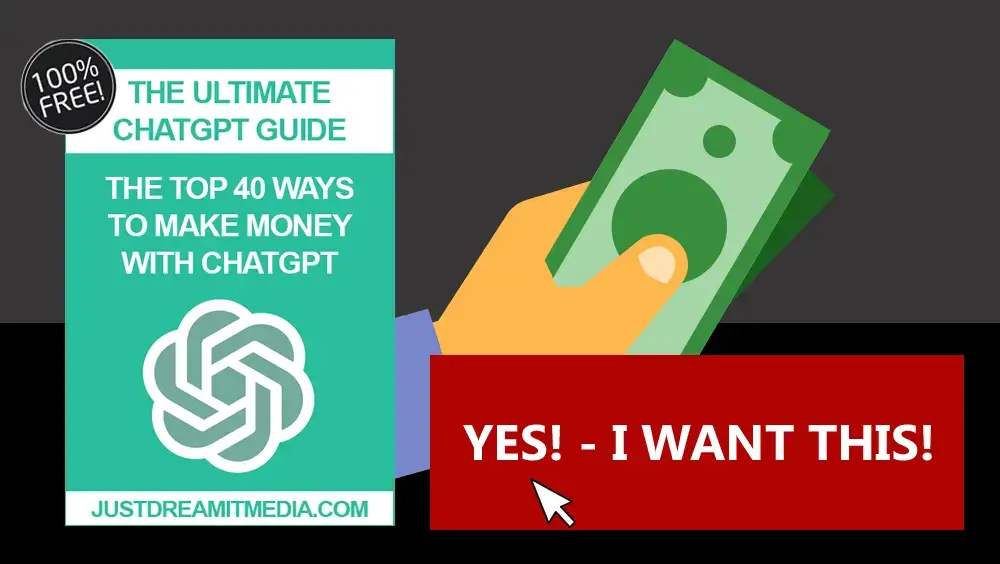
Social Media Management
In today’s digital landscape, social media plays a crucial role in B2B marketing. ChatGPT can be used for crafting engaging posts and responding to user comments, helping businesses maintain a strong online presence.
Crafting Engaging Posts
A manufacturing company looking to showcase its latest innovations can use ChatGPT to create captivating social media posts. By providing the AI with the necessary information and keywords, such as “innovative manufacturing solutions” or “cutting-edge production techniques,” the company can obtain attention-grababbing social media content that resonates with their audience. This, in turn, can drive engagement, increase brand awareness, and generate new leads.
Responding to User Comments
ChatGPT can also be utilized to respond to user comments on social media platforms. By automating responses, businesses can ensure timely and consistent communication with their followers. For example, a B2B marketing agency can use ChatGPT to address questions about their services, respond to feedback, or direct users to relevant resources, thus fostering stronger relationships with their audience.
Email Marketing
Personalized email campaigns are a powerful tool for B2B marketing success. ChatGPT can be harnessed to create engaging email content and tailor it to the specific needs and interests of each recipient.
Personalized Outreach
For instance, a SaaS company can use ChatGPT to create personalized outreach emails to potential clients. By inputting the recipient’s industry, job role, and pain points, the AI can generate a customized email that addresses their unique needs and showcases the company’s solutions. This level of personalization can result in higher open and click-through rates, ultimately leading to more conversions.
Newsletter Creation
Additionally, ChatGPT can be employed for effective B2B newsletter creation. By providing the AI with a list of topics, keywords, and relevant industry news, businesses can obtain a well-crafted and informative newsletter that keeps their audience engaged and informed.
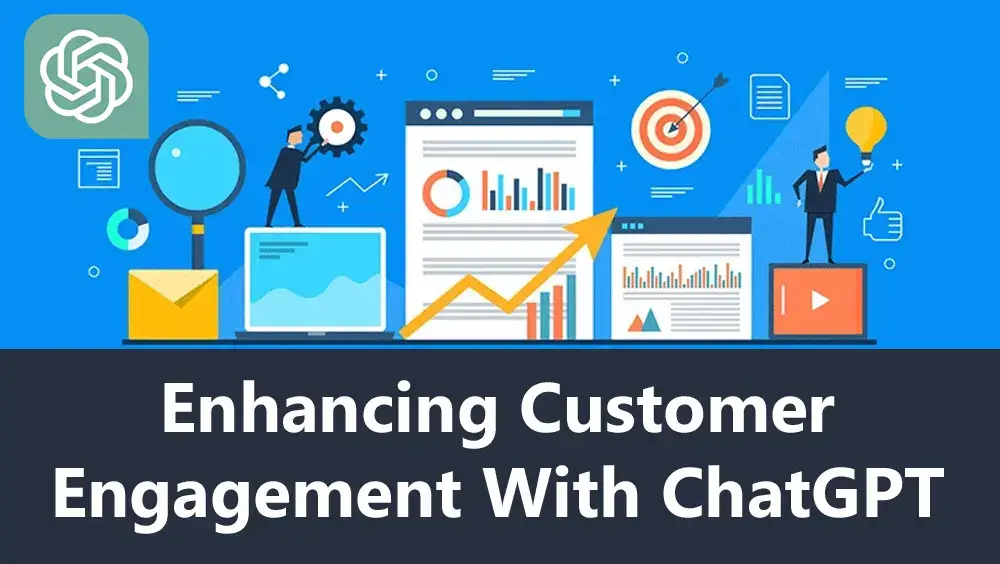
Enhancing Customer Engagement with ChatGPT
Chatbot Integration
Integrating ChatGPT into chatbots can significantly improve customer engagement in B2B marketing. AI-powered chatbots can be used for lead qualification and customer support, ensuring a seamless customer experience.
Lead Qualification
For example, a B2B software vendor can use ChatGPT-powered chatbots to qualify leads by asking a series of questions about their needs, budget, and decision-making process. By gathering this information, the chatbot can determine whether the prospect is a good fit for the company’s solutions and forward them to the appropriate sales representative.
Customer Support
ChatGPT can also be utilized for AI-assisted B2B customer support strategies. By integrating ChatGPT into their customer support platform, businesses can provide instant, accurate, and helpful information to users, leading to increased customer satisfaction and loyalty.
Personalized Product Recommendations
By leveraging ChatGPT’s natural language processing capabilities, businesses can offer personalized product recommendations to their clients. For example, a B2B e-commerce platform can use ChatGPT to analyze customer browsing history and purchase patterns, and then generate tailored product suggestions that cater to their specific needs and preferences.
Interactive Content Experiences
Creating interactive content experiences can be a game-changer in B2B marketing. ChatGPT can be employed to generate quizzes, interactive infographics, or calculators that engage users and provide valuable insights. For example, a B2B financial services provider can use ChatGPT to develop an interactive ROI calculator that helps potential clients understand the potential return on investment of their services.
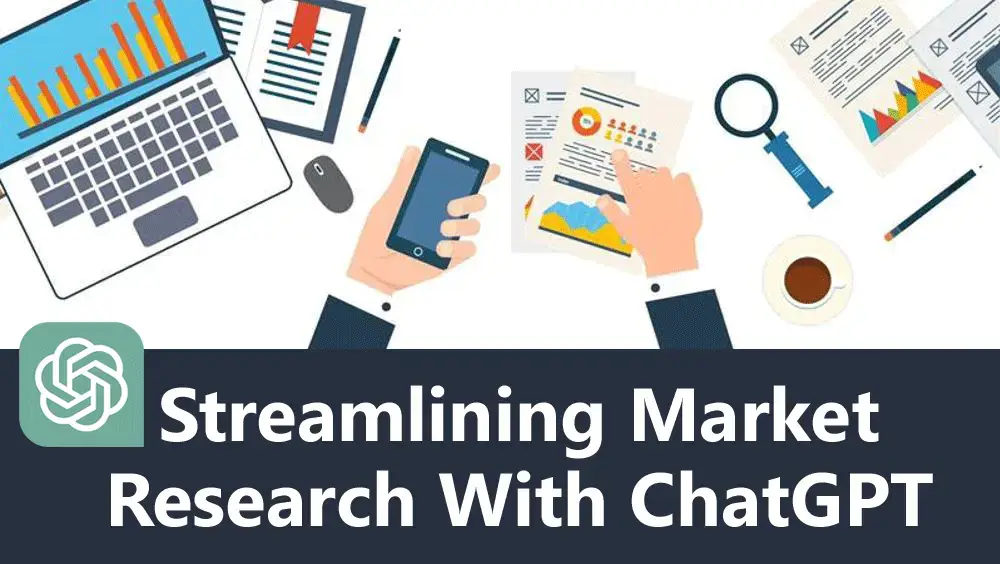
Streamlining Market Research with ChatGPT
Competitor Analysis
Effective competitor analysis is crucial for B2B marketing success. ChatGPT can be used to automate this process, saving time and resources. For example, a logistics company can use ChatGPT to analyze competitor websites, social media profiles, and online reviews to identify their strengths and weaknesses. This information can then be used to devise targeted marketing strategies that set the company apart from the competition.
Identifying Emerging Trends
Keeping up with industry trends is essential for staying ahead of the curve in B2B marketing. ChatGPT can help businesses identify emerging trends by analyzing large volumes of data from various sources, such as news articles, industry reports, and
social media discussions. For example, a B2B marketing agency can use ChatGPT to track conversations surrounding the latest digital marketing tools and strategies, enabling them to stay informed and adapt their offerings to meet evolving client needs.
Generating Customer Insights
Gaining deep insights into customer preferences and behavior is vital for B2B marketing success. ChatGPT can be employed to analyze customer data, such as purchase history, interactions with marketing materials, and feedback, to generate valuable insights that inform marketing strategies. For instance, a B2B software company can use ChatGPT to identify the most sought-after features and pain points of their clients, helping them refine their product offerings and tailor their marketing messages.
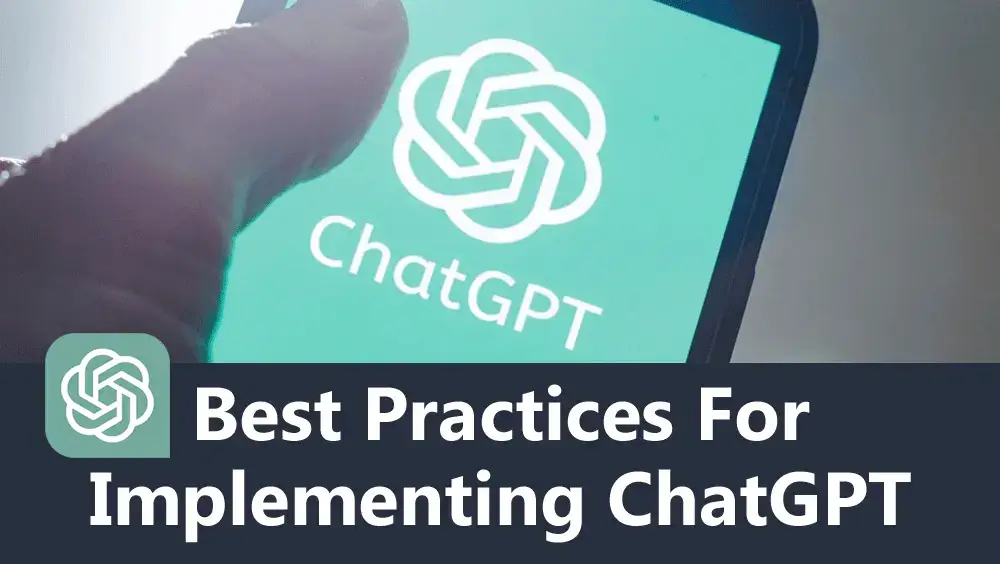
Best Practices for Implementing ChatGPT
Data Privacy and Security
When using ChatGPT in B2B marketing, it’s essential to prioritize data privacy and security. Businesses should ensure they adhere to relevant data protection regulations, such as GDPR or CCPA, and implement secure practices for handling and storing customer data.
Human-AI Collaboration
While ChatGPT is an incredibly powerful tool, it should be used in conjunction with human expertise to ensure optimal results. By incorporating human editors into the content creation process, businesses can refine the AI-generated content and ensure it aligns with their brand values and messaging.
Continuous Optimization
As with any marketing tool, it’s crucial to continuously optimize and refine the use of ChatGPT to achieve the best results. This involves monitoring key performance indicators (KPIs), gathering feedback from users, and making data-driven adjustments to improve performance and deliver a more impactful marketing experience.
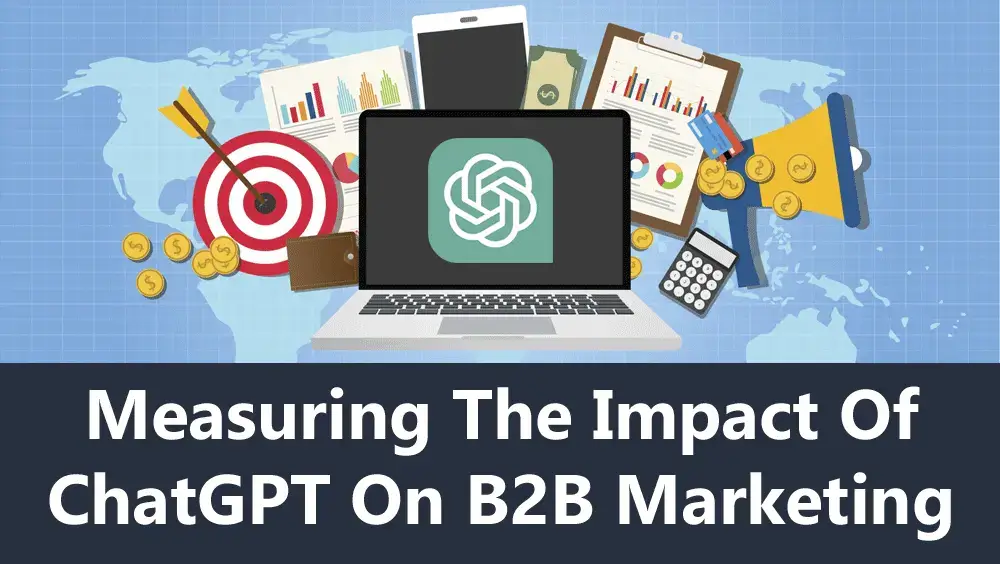
Measuring the Impact of ChatGPT on B2B Marketing
Key Performance Indicators (KPIs)
To evaluate the effectiveness of ChatGPT in B2B marketing, businesses should track various KPIs, such as engagement rates, conversion rates, and return on investment (ROI). By monitoring these metrics, companies can assess the impact of ChatGPT on their marketing efforts and make informed decisions about future strategies.
Return on Investment (ROI)
Calculating the ROI of ChatGPT implementation is vital for understanding its value in B2B marketing. By comparing the costs associated with using ChatGPT (e.g., licensing fees, training costs) to the revenue generated from its use (e.g., increased conversions, reduced content creation costs), businesses can determine the overall effectiveness of their ChatGPT investment.
Customer Satisfaction Metrics
Customer satisfaction is a key indicator of B2B marketing success. By measuring metrics such as customer satisfaction scores, Net Promoter Scores (NPS), and customer feedback, businesses can assess the impact of ChatGPT on their customer experience and make necessary improvements to enhance satisfaction and loyalty.
ChatGPT offers numerous benefits for B2B marketing, from content creation and customer engagement to market research. By implementing best practices and continuously optimizing its use, businesses can harness the power of ChatGPT to drive marketing success and stay ahead of the competition. As AI technology continues to evolve, its potential in B2B marketing is expected to grow, making it an indispensable tool for businesses looking to thrive in the digital age.
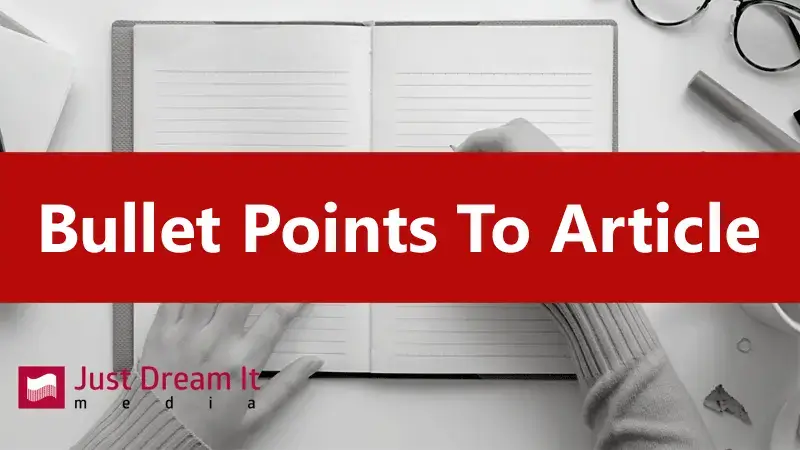
As a beginner exploring the world of B2B marketing and artificial intelligence, understanding the role of ChatGPT can help you stay ahead of the competition.
This article covers the main points and descriptions of how ChatGPT can be used for B2B marketing success:
1. Understanding ChatGPT: ChatGPT is an AI-driven tool based on the GPT-4 architecture, which enables it to understand and generate content in various languages and formats. It has limitations, such as generating biased or offensive content, which can be mitigated by human editing.
2. Role of ChatGPT in B2B Marketing: ChatGPT can be used for various marketing tasks, including content creation, customer engagement, and market research.
3. Content Creation: ChatGPT can automate content generation for blog posts, whitepapers, and case studies, saving time and resources for marketing teams.
4. Social Media Management: ChatGPT can help craft engaging social media posts and respond to user comments, ensuring consistent communication and boosting brand awareness.
5. Email Marketing: Personalized email campaigns can be created using ChatGPT, which can result in higher open and click-through rates, leading to more conversions.
6. Customer Engagement: By integrating ChatGPT into chatbots, businesses can improve customer engagement through lead qualification and customer support. Personalized product recommendations and interactive content experiences can also be created using ChatGPT.
7. Market Research: ChatGPT can streamline competitor analysis, identify emerging trends, and generate customer insights, helping businesses make data-driven decisions.
8. Best Practices: Prioritize data privacy and security, embrace human-AI collaboration, and continuously optimize the use of ChatGPT to achieve the best results.
9. Measuring Impact: Track key performance indicators (KPIs), calculate return on investment (ROI), and monitor customer satisfaction metrics to assess the effectiveness of ChatGPT in B2B marketing.
By understanding these main points and incorporating ChatGPT into your B2B marketing strategy, you’ll be well-equipped to harness the power of AI and achieve marketing success in today’s competitive business landscape.

Action Plan: Leveraging ChatGPT for B2B Marketing Success
1. Familiarize yourself with ChatGPT: Research and learn about ChatGPT’s capabilities, limitations, and potential applications in B2B marketing.
2. Identify areas of application: Assess your current marketing efforts and pinpoint areas where ChatGPT can be most beneficial, such as content creation, social media management, email marketing, or customer engagement.
3. Develop a ChatGPT implementation strategy: Outline a plan for incorporating ChatGPT into your marketing activities, including selecting specific tasks and setting measurable goals.
4. Integrate ChatGPT with existing tools: Ensure seamless integration of ChatGPT with your existing marketing tools, such as content management systems, email marketing platforms, and social media management tools.
5. Establish data privacy and security protocols: Implement best practices for data protection and ensure compliance with relevant data privacy regulations.
6. Train your team: Provide training and resources to your marketing team to help them understand and effectively utilize ChatGPT in their daily tasks.
7. Embrace human-AI collaboration: Encourage your team to collaborate with ChatGPT, using AI-generated content as a starting point and refining it to align with your brand values and messaging.
8. Monitor performance: Regularly track key performance indicators (KPIs), such as engagement rates, conversion rates, and return on investment (ROI), to assess the impact of ChatGPT on your marketing efforts.
9. Gather feedback and optimize: Collect feedback from your team and customers to identify areas of improvement and make necessary adjustments to your ChatGPT implementation strategy.
10. Stay informed: Keep up to date with the latest advancements in ChatGPT and AI technology to ensure you’re leveraging the most current and effective tools for your B2B marketing efforts.
By following this action plan, you can harness the power of ChatGPT to enhance your B2B marketing strategy, drive engagement, and achieve greater success in today’s competitive business landscape.

As a beginner exploring ChatGPT for B2B marketing, you may have several questions about its applications and benefits.
Here are 10 frequently asked questions with answers to help you better understand this AI-driven tool:
1. What is ChatGPT?
Answer: ChatGPT is an AI language model based on the GPT-4 architecture, designed to understand and generate human-like text. It is used in various applications, including content creation, customer engagement, and market research.
2. Can ChatGPT create content for my blog?
Answer: Yes, ChatGPT can be used to generate content for blog posts, whitepapers, and case studies, saving time and resources for your marketing team.
3. How can ChatGPT help with social media management?
Answer: ChatGPT can help craft engaging social media posts and respond to user comments, ensuring consistent communication and boosting brand awareness.
4. Can ChatGPT be used for personalized email marketing?
Answer: Yes, ChatGPT can be employed to create personalized email campaigns tailored to the specific needs and interests of each recipient, resulting in higher open and click-through rates.
5. Is it possible to integrate ChatGPT with chatbots?
Answer: Absolutely, ChatGPT can be integrated into chatbots to improve customer engagement through lead qualification and customer support, ensuring a seamless customer experience.
6. How can ChatGPT streamline market research?
Answer: ChatGPT can automate competitor analysis, identify emerging trends, and generate customer insights, helping businesses make data-driven decisions.
7. What are the best practices for using ChatGPT?
Answer: Prioritize data privacy and security, embrace human-AI collaboration, and continuously optimize the use of ChatGPT to achieve the best results.
8. How do I measure the impact of ChatGPT on my B2B marketing efforts?
Answer: Track key performance indicators (KPIs), calculate return on investment (ROI), and monitor customer satisfaction metrics to assess the effectiveness of ChatGPT in your marketing efforts.
9. Can ChatGPT replace human marketers?
Answer: While ChatGPT is a powerful tool, it should be used in conjunction with human expertise to ensure optimal results. Human editors can refine the AI-generated content and ensure it aligns with brand values and messaging.
10. How can I stay informed about the latest advancements in ChatGPT?
Answer: Keep up to date with the latest news and developments in AI technology, join relevant online forums or communities, and follow industry experts to stay informed about the latest advancements in ChatGPT and AI-powered marketing tools.
Conclusion
In conclusion, ChatGPT offers immense potential for B2B marketing success by automating content creation, enhancing customer engagement, and streamlining market research. By understanding and implementing ChatGPT in your marketing strategy, you can save valuable time and resources while staying ahead of the competition. Embracing human-AI collaboration and adhering to best practices will ensure optimal results from your AI-driven marketing efforts.
Don’t miss out on the opportunity to harness the power of ChatGPT for your B2B marketing. Start by identifying areas where ChatGPT can have the most significant impact, develop an implementation strategy, and train your team to make the most of this cutting-edge technology. Remember to continuously monitor performance, gather feedback, and optimize your strategy to achieve the best possible results.
Take action today and leverage ChatGPT to revolutionize your B2B marketing efforts, drive engagement, and boost your business’s growth in today’s competitive landscape.

